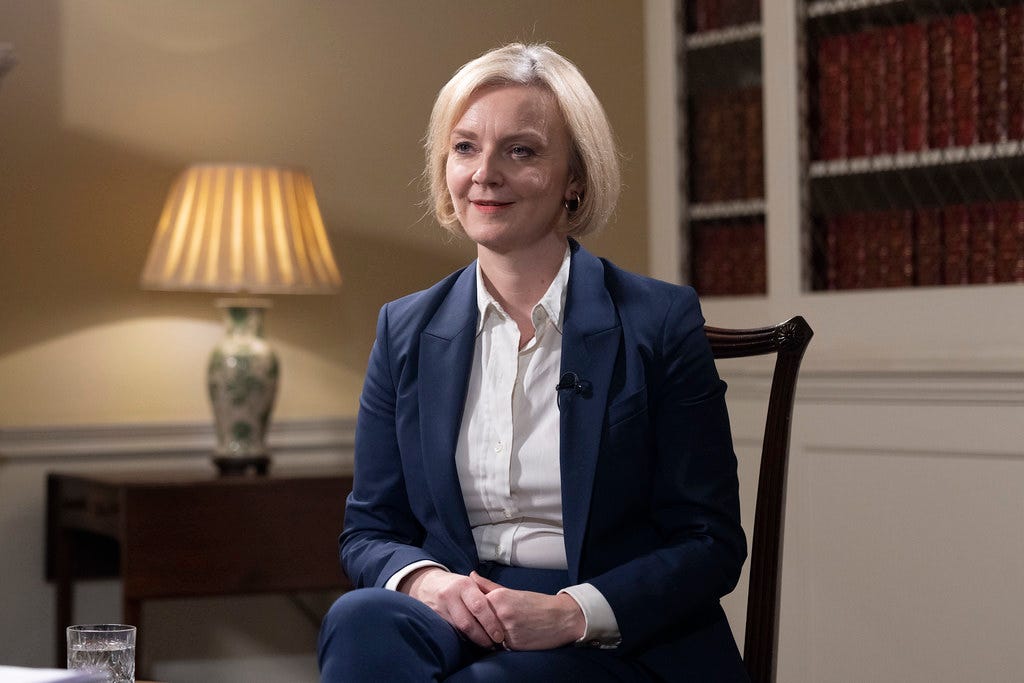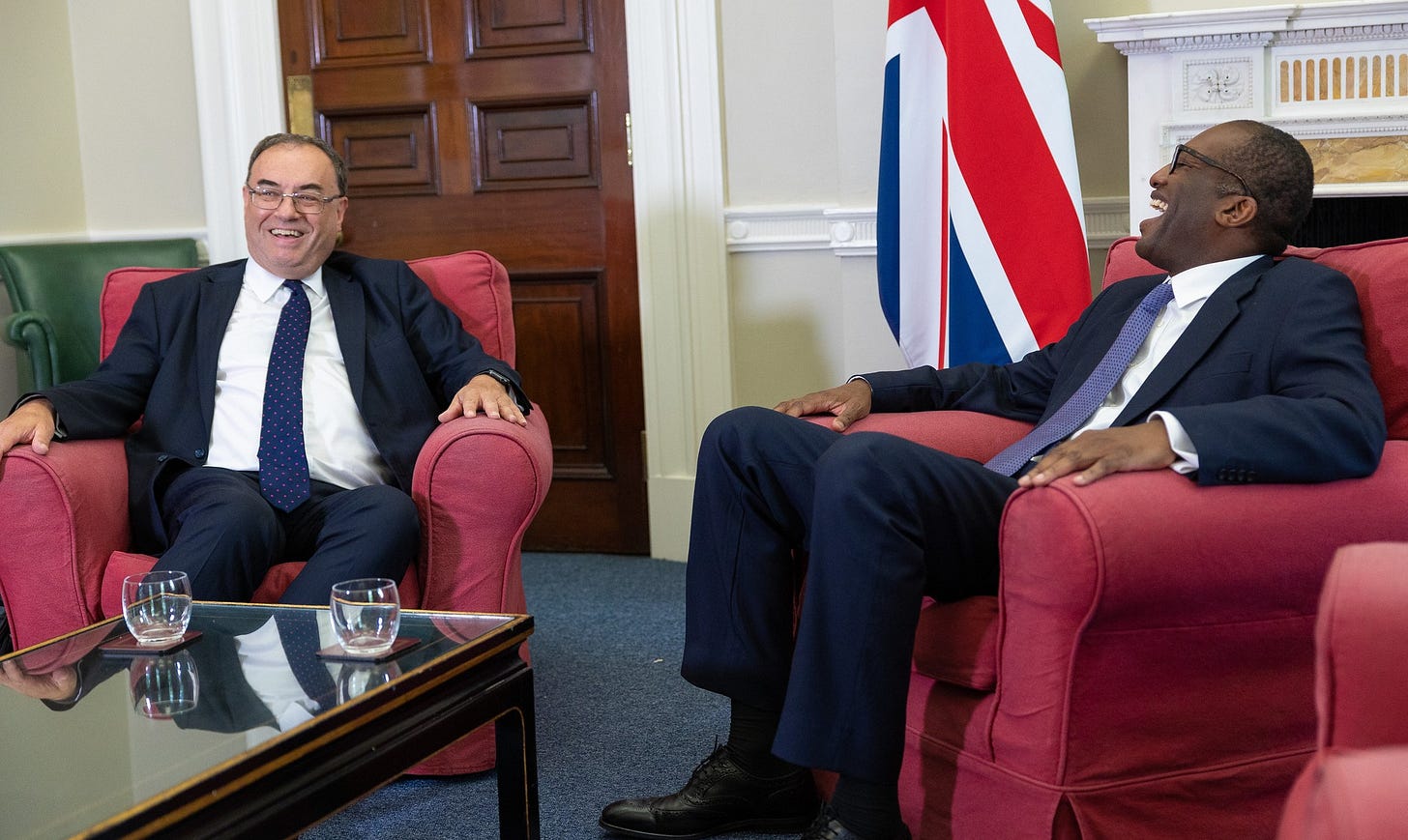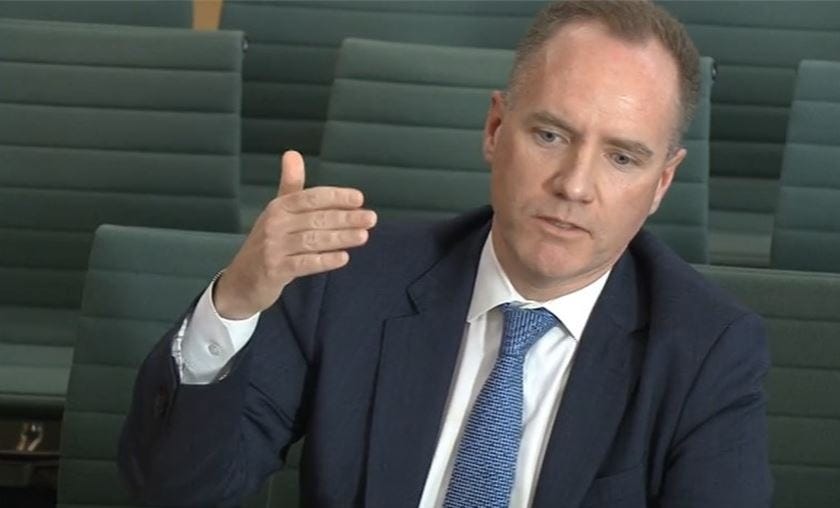Make The Treasury Great Again
Truss’s mini-budget didn’t just blow up the markets — it left the Treasury too afraid to challenge the Bank of England and OBR
We stand on the shoulders of giants. Thanks to the industry, foresight and no doubt naked ambition of those who came before us, our taxes are lower, mortgages cheaper and politics less bloody. Institutions really are the gift that keep on giving. And Britons of today are especially fortunate, for many of ours date back not just decades, but centuries.
Founded in 1694, primarily to fund war against France, the Bank of England enjoys the sort of credibility that less established central banks lack. Its record on taming the inflationary tiger is hardly flawless. Prices in Britain rose by roughly 750% in the 25 years to 1992 — more than in the previous 250 years. But without its long history and more recently its operational independence, the markets would no doubt be demanding an even higher risk premium on UK debt.
Trust in these institutions compounds over time, much like interest on a long-term investment. Institutions that have survived world wars, depressions and pandemics over 300 years are presumed more likely to still be around tomorrow. Which is why the desire of certain politicians to undermine them in pursuit of short-term political gain is so galling.
Truss, but verify
The short, chaotic and frankly cartoonish premiership of Liz Truss had a number of consequences for the British economy, many of which were mercifully transient. The so-called ‘moron premium’ — the UK-specific spike in borrowing costs sparked by the mini-Budget, had largely subsided by the end of 2022. Sterling, which had fallen to an all-time low against the dollar, swiftly recovered. Meanwhile, the turmoil in the LDI market was acute but short-lived.
Of course, as with any post-viral infection, there are some lingering symptoms. The Conservative Party’s reputation for economic competence suffered a catastrophic blow. The cause of economic radicalism was set back for a generation which, as Chris Giles of the Financial Times wrote last year, is a shame, given that the UK has endured an average of 1% GDP growth since 2007, compared with 2.5% in the previous 17 years, and could do with a shot in the arm.
But the consequence I want to focus on today is the impact of the Truss experiment on another institution — the Treasury, and its ability to challenge the decisions made by those in its orbit, most notably the Bank of England and the Office for Budget Responsibility (OBR).
By the end of the Truss premiership, both the Bank and OBR had their reputations burnished. The former acted swiftly and effectively to prevent a pensions crisis from expanding, while the latter (which also happens to be several hundred years younger) emerged as something of an immoveable object.
Recall that the central issue with the mini-Budget was not simply the unfunded tax cuts or Kwasi Kwarteng’s promise of more to come, but the fact that the Treasury (without its recently sacked permanent secretary Tom Scholar) had conspicuously declined to get the OBR to score its fiscal event. Presumably on the basis that the fiscal watchdog’s judgement would not be wholly complimentary.
Since then, it has been notably harder for the Treasury to challenge either the Bank or the OBR, even when they really ought to. Because the last time that happened, the world nearly ended. Clearly, this is a problem. Because it’s not the case that the Bank or OBR are always right and the government of the day wrong.
Mistakes, I’ve had a few
In November 2023, the House of Lords Economic Affairs Committee published a fairly excoriating report into the Bank’s performance, following the inflationary spike that began in late 2021 and has yet to fully dissipate. The Committee criticised the Bank for a lack of “intellectual diversity”, spoke of a “democratic deficit” and warned that its ever-expanding remits risked “jeopardising the Bank’s ability to prioritise its primary objectives.”
Then there is the OBR. When the new Labour government came to office, it strengthened the power of the financial watchdog. A new law aims to prevent any future administration from sidelining the OBR, giving it further powers to make judgements on major taxation and spending measures in order to deliver “stability”.
A strong OBR is not in itself a bad thing. But the watchdog should not be shaping government policy in quite the way it does today. To be clear, that is partly a consequence of the chancellor’s own decisions. Small changes in forecasts matter more when Rachel Reeves, like so many of her predecessors, has left herself with such limited fiscal headroom.
But we are now in the ludicrous position where a major (or frankly, even a minor) downgrade in the OBR’s productivity growth forecast could force the chancellor to scramble around for billions of pounds in savings. Even a 0.1 percentage point cut in the productivity growth forecasts over the next five years would eradicate Reeves’ precious £9.9bn of fiscal headroom.
Look, I value institutions. But I also want our democratically elected and therefore accountable leaders to do their jobs too. There is surely a landing zone between abolishing Bank of England independence and never uttering a critical word about its handling of post-Covid inflation or the way in which it went about its programme of quantitative easing.
Same goes for the OBR. We can ensure no future government will refuse its offer of forecasts without making those very forecasts — which, by their nature, are intelligent guesses based on imperfect data — the thing that determines whether the chancellor is forced to raise billions of pounds in taxes.
I’m not suggesting Make The Treasury Great Again or anything as reductive as that (sorry about the clickbait subject line). But HM Treasury ought to remember it is an ancient and important institution too. It should have the confidence to act like it. That doesn’t mean sidelining its peers — but asking tough questions, standing its ground and recognising that democratic legitimacy still counts for something.






I am amazed to be the first to tell you that the BoE was founded in 1694 but that’s a small thing. The big thing is the British Economy on which we all depend. I graduated in Economics in 1964 when the data on what was happening in the economy was much more secretive than it is today. I accept that the level of pensions and social security payments today would amaze the chancellor in 1964 but there is much less poverty, there is better healthcare, better housing, etc. The question is how to achieve better growth. I accept that the three bodies involved, Treasury, BoE and the body for Budgetary Responsibility use the same data but none of them reach the conclusions of the other two. I remember that Brown and Balls used to hold war games with them but never published the conclusions. An article in yesterday’s Observer ventured that we, the Brits, were in the top 10 when it came to innovation but most of the Startups were picked off by the Americans before they could become established companies, employing thousands and exporting most of their output. Venture Capital using Pension Funds was suggested as a source of funds for these startups to prevent them going to America. There is a need for public opinion to get behind the British Government in preventing established companies being bought and moved overseas. Boots the Chemist is a prime example. It was bought using untruths about movement of its tax base. Theresa May was hopeless in gaining any assurances about this. We lost £18 billion in tax when the company moved its operations to Switzerland.
Given that SME's are a major, if not the major, part of our economy, it would be helpful if they were understood by the Treasury, B of E and the OBR. Economists are okay when it comes to the macro, broad movements on a large scale. Not so much with the micro, where people actually live. As it is we have a short term economy which also favours the elderly investor with a safe portfolio, while allowing far too much freedom to robber barons. John Woods below has made an excellent point about Boots and the lies told by its American owners. I'd add Cadbury's (US takeover again) which broke every promise made to HMG. And now produces seriously unpleasant chocolate. With that, there is more than a suspicion that senior civil servants, B oF E officials, always have one eye on future, commercial, directorships. They are too cozy with the City by far. As a start, past recommendations and decisions by these two should be made fully public with the reasons given.